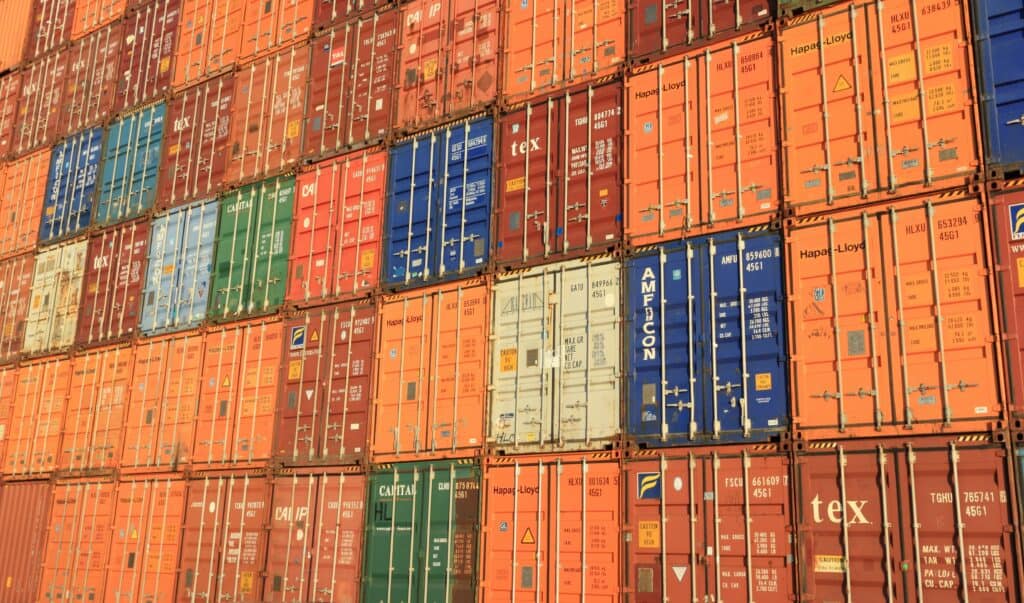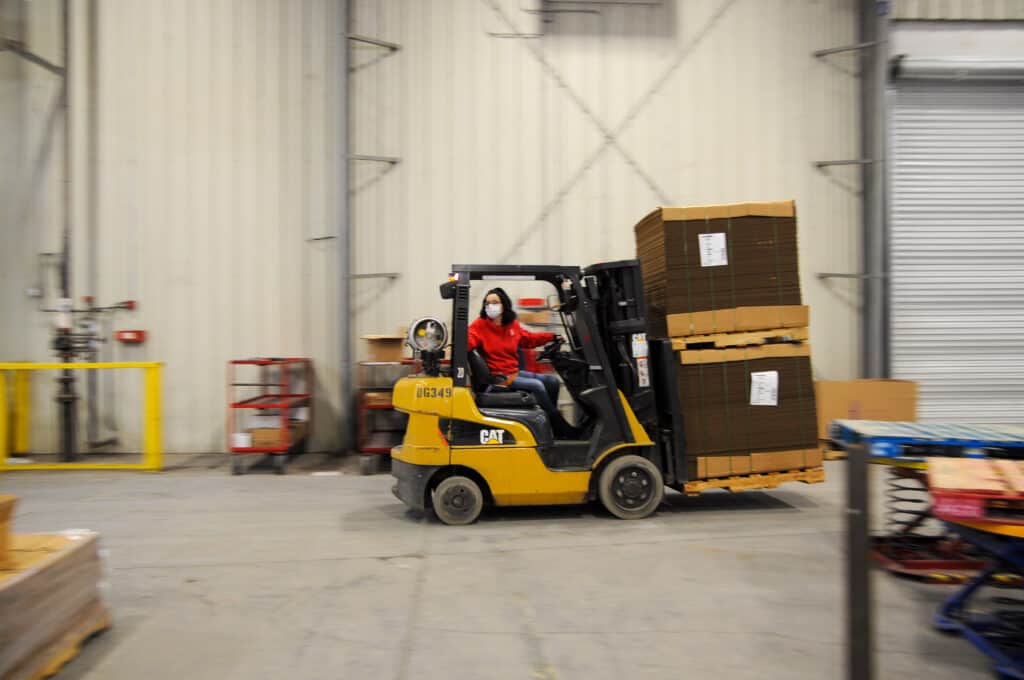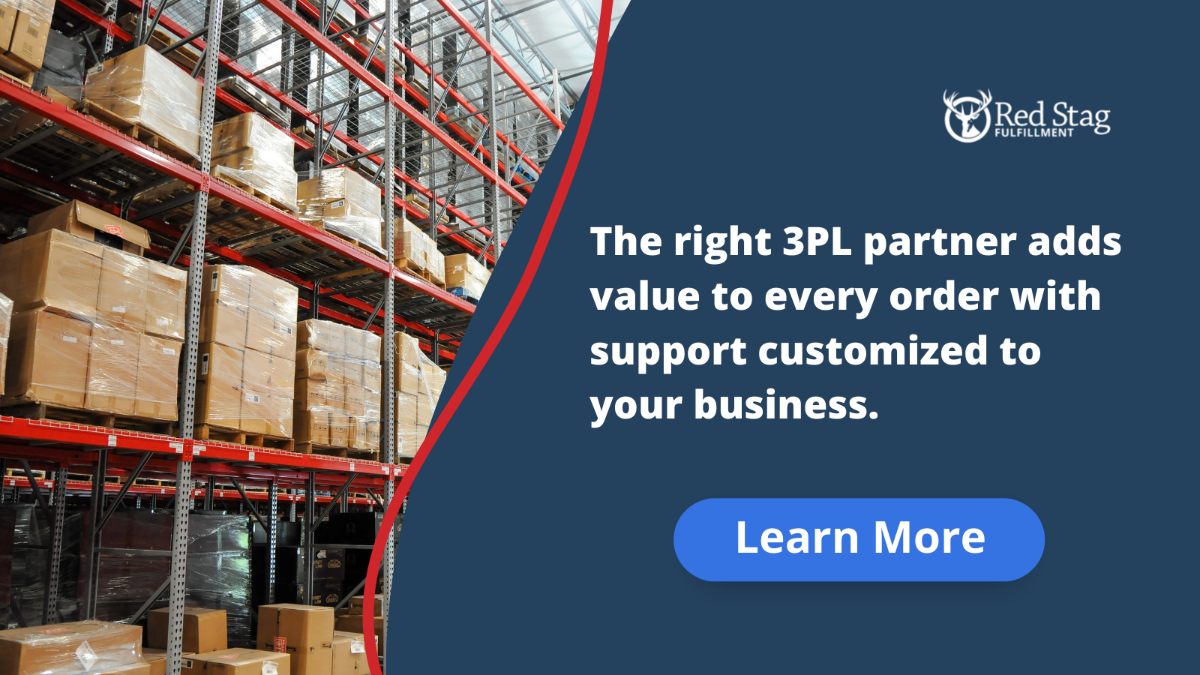Using a freight forwarder is similar to working with a 3PL for your eCommerce fulfillment. Both add expert professional services to your supply chain without the hassle of hiring, training, and supervising in-house staff.
Here’s what you need to know to decide if freight forwarding can improve your logistics.

What is a freight forwarder?
A freight forwarding company arranges your freight shipping. Most freight forwarders oversee international freight because so many supply chains span multiple countries, and a freight forwarder is particularly useful when transporting goods across borders.
Here are some of the services a freight forwarder can provide for your business:
- Arrange transportation via rail, truck, air, and cargo ship
- Offer volume pricing discounts that they have access to because of the amount of freight they handle for various clients
- Suggest packing to ensure that goods are packed properly for transit
- Figure out the best routing and combinations of transport modes to get a shipment from origin to destination
- Complete customs paperwork for international freight
- Arrange or provide warehousing when needed at different stages of transport
- Provide real-time tracking so you can follow your shipment from door to door
Freight is, by its nature, a custom service, and different supply chains call for different freight solutions. A freight forwarder will typically offer flexible solutions to meet the specific needs of your eCommerce company.
If your enterprise is like most eCommerce companies, you probably don’t have your own transportation infrastructure or the expertise to manage freight logistics. Freight forwarders are experienced professionals who can provide expert insights to improve your supply chain and save you money on transportation.

How freight forwarding helps companies move international freight
International freight forwarding starts at the factory. Your freight forwarder can arrange for ground transport to the port, find container space on a cargo vessel, and complete the paperwork needed to import your goods successfully.
In some cases, manufacturers offer transportation to the port, but you may get a better price when you work with a freight forwarder for the whole journey from the factory to the fulfillment warehouse. Freight forwarding companies usually have relationships with trucking, rail, air cargo, and ocean shipping companies. Those relationships allow these companies to secure better rates and find space to transport your merchandise in a competitive shipping environment. The forwarder may even combine products from several clients into one international shipment to cut costs.
Moving containers across international borders requires knowledge of complex customs paperwork and sometimes payment of duties or tariffs. Mistakes can cause merchandise to get held up at the border, sometimes for weeks or months, ruining your inventory planning and keeping your products from the market. International freight forwarding companies can help you, providing expertise to ease your goods through customs more quickly.

Which eCommerce businesses need freight forwarders?
When your eCommerce business was small, you might not have needed a freight forwarder. You ordered small quantities, so shipping was relatively simple, even if your components or finished goods came from overseas. As your enterprise has grown, however, freight forwarding services may be essential to the smooth operation of your supply chain.
If you source products or materials in more than one country, you will probably benefit from freight forwarding services. The logistics of moving your merchandise will take time, whether it’s one of your staff or a third party making the arrangements. Outsourcing is the best option if your business isn’t big enough to justify hiring a full-time in-house team. When you hire a freight forwarder, you get the amount of expert help you need without having to hire more staff.
How much do freight forwarders cost?
Freight forwarders charge an administrative fee for their services. The cost will vary with the amount you’re shipping, countries of origin and destination, and the type of goods involved. Some products, such as food products, may require special licensing, inspections, or paperwork for export or import. Freight forwarders may also apply surcharges for fumigation and currency adjustment services. If your goods are moving in or out of a warzone, your freight forwarding company might need to add a war risk surcharge to offset the difficulty of moving goods through dangerous territory.

What to know about working with a freight forwarder
When you start working with a freight forwarder, they will help you understand what you need to do to make the most of their services. However, it’s useful to understand the process and be informed beforehand. Ask your 3PL for assistance, even if the company doesn’t have an in-house freight forwarder.
Here are some tips for working with a freight forwarder.
If your supplier arranges partial freight, understand the costs
Many factories and suppliers offer limited freight forwarding services. For example, a manufacturer in Shenzhen may offer to arrange transport of a container to the port for you or even secure space on a container ship. Since Shenzhen is a port city and the manufacturer knows the area well, you may want the factory to start the shipping process and hand the container off to your freight forwarding company further on its journey.
However, you could be paying inflated prices for trucking and shipping. Get an estimate for the freight line items before you agree to this arrangement. Then ask for a quote from your freight forwarder for comparison.

Calculate dimensional as well as actual weight
Like FedEx, UPS, and USPS, freight carriers calculate shipping costs based on dimensional weight as an alternative to actual weight. Dimensional weight charges generally apply to items that are large for their weight. For example, bicycles need to be shipped in large boxes that can incur dimensional weight charges; a freight shipment of bikes might have the same issue. Work with your freight forwarder to find ways to reduce dimensional weight and ensure that you understand any DIM weight charges up front, so you don’t have unexpected shipping charges.
Leverage your freight forwarder to help you streamline international efforts
Customs paperwork can involve dozens of forms, inspections, and time spent in a bonded warehouse. Choose a freight forwarder with experience shepherding products like yours through customs and take that headache off your to-do list.

How Red Stag Fulfillment helps clients connect with freight forwarding services
Red Stag Fulfillment can look at your business model and help you find a freight forwarder that will best fit your business based on your manufacturing locations, size, product mix, and company initiatives. Our director of fulfillment, Lorrie Watts, has an extensive background in domestic and international shipping and often works with our clients to find ideal freight forwarding solutions.
RSF’s freight forwarding consultation is just one example of how we go above and beyond to provide the services our clients need to grow and scale their businesses. If you’re ready for top-notch 3PL services, get in touch.

More about freight shipping:








